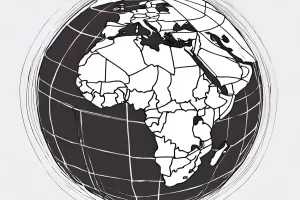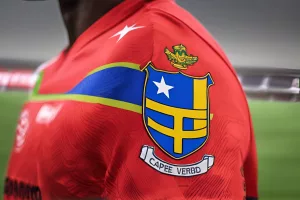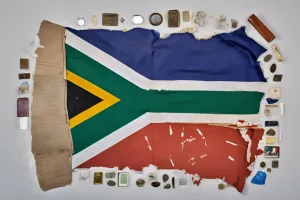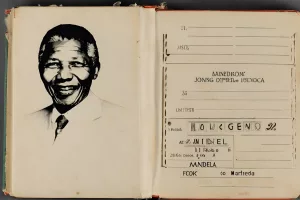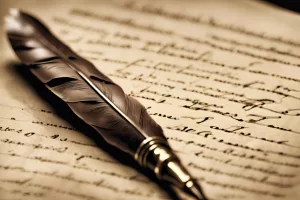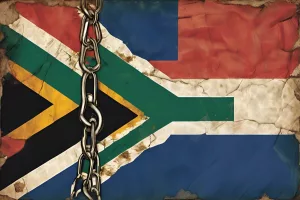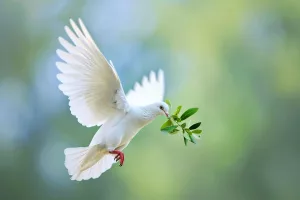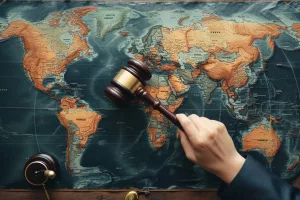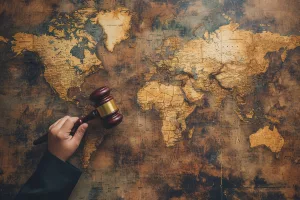South Africa’s journey after apartheid began with hope, shining brightly with Nelson Mandela’s leadership and the rise of the ANC. However, challenges like corruption, especially during Jacob Zuma’s time as president, have darkened that bright path. Mac Maharaj, a key voice in the antiapartheid movement, warns that the country needs to focus on rebuilding trust and accountability within the ANC. He urges young people to take charge and help shape a better future, reminding everyone that the past’s lessons are crucial for a brighter tomorrow. The heart of South Africa’s story is about facing challenges headon and dreaming of a united and just nation.
The Nelson Mandela Commemorative Centre and School of Public Governance is a monument being developed in Cape Town, South Africa to celebrate the legacy of late President Nelson Mandela. It will cultivate ethical leadership and shape future generations of leaders, and will feature interactive public art pieces, reflective paths, and communal spaces. The center, which will house the Nelson Mandela School of Public Governance, is committed to nurturing upcoming leaders from throughout Africa and standing as a symbol of ethical leadership and a brighter future.
Cape Verde’s coach, Pedro ‘Bubista’ Brito, draws inspiration from Nelson Mandela’s philosophy of justice and equality as his team, the Blue Sharks, prepares for a crucial Africa Cup of Nations quarterfinal match against South Africa. Despite injury issues, Bubista aims to surpass their previous record of reaching the quarterfinals and strive for the semifinals, embodying Mandela’s values of equality, resilience, and unity. The match is anticipated to be a captivating display of fierce competition, with both teams aiming for victory.
The planned auction of Nelson Mandela’s memorabilia was halted by the South African Heritage Resources Agency (SAHRA), which appealed to prevent the sale of around 74 relics, citing their cultural significance. The auction, arranged by Mandela’s eldest daughter and a New Yorkbased auction house, had attracted controversy and criticism from different sectors, including the government. The suspension of the auction allows SAHRA to continue its mission to conserve the nation’s cultural heritage, highlighting the tension between personal ownership and the preservation of national heritage.
Controversy in the Memorabilia World: The Auction of Nelson Mandela’s Personal Belongings
The auction of Nelson Mandela’s personal belongings, including his ID and prison correspondence, caused controversy due to their cultural and historical significance to South Africa. The auction was initially intended to raise funds for a memorial garden but was suspended due to backlash. The tension between personal property rights and national heritage was highlighted, and Mandela’s legacy remains unscathed regardless of the location of these items. The incident underscores the importance of preserving historical artifacts and the complexity of navigating personal property rights in relation to cultural heritage.
The South African Heritage Resources Agency (SAHRA) is objecting to the sale of Nelson Mandela’s personal possessions due to their cultural significance to South Africa’s national heritage. As an integral part of the country’s cultural identity, Mandela’s life achievements and experiences continue to inspire future generations. The legal battle highlights the conflict between cultural preservation and commercial exploitation, and the outcome could potentially create a benchmark for future cases where cultural heritage clashes with business interests. The struggle is a fight for national pride, heritage, and the enduring legacy of a man who revolutionized a nation.
Cape Town’s historical attractions offer an enlightening perspective on the past while shedding light on the present. The Robben Island Museum is a mustvisit landmark, showcasing Nelson Mandela’s life during apartheid. BoKaap Museum pays homage to the local Islamic culture, while the Iziko Slave Lodge offers a stark reminder of South Africa’s shameful slavery history. The Castle of Good Hope takes visitors back to South Africa’s colonial past, and the District Six Museum honors the displaced community during apartheid. These attractions are storytellers that narrate tales of resilience, survival, and the indomitable strength of the human spirit.
The auction of Nelson Mandela’s personal artifacts by his daughter, Makaziwe Mandela, has ignited a controversy over the preservation of the late statesman’s legacy. The South African Heritage Resources Agency and the Department of Sport, Arts, and Culture are fighting the auction, citing the importance of preserving Mandela’s contributions to the country’s heritage. The auction’s proceeds will fund the construction of a memorial garden at his final resting place, but the case highlights the delicate balance between private possession of historical artifacts and the public’s interest in conserving national heritage.
South Africa has taken a bold legal move against Israel for alleged war crimes, exhibiting its unwavering dedication to justice and democracy. This audacious undertaking mirrors Nelson Mandela’s principles and stands as a testament to the nation’s resilience and unwavering commitment to justice. South Africa’s case was both compelling and emotional, spotlighting the harsh reality of Gaza, where indiscriminate violence has led to the loss of thousands of civilian lives. Despite potential diplomatic repercussions, South Africa’s legacy of resisting oppression, giving voice to the voiceless, and upholding justice persists.
South Africa is preparing to battle Israel in the International Court of Justice, aiming to force Israel to cease its military operations in Gaza, which the South African government has called “genocide.” The legal team, referred to as the “Ateam,” includes top legal minds with expertise in international law and a flair for presenting compelling arguments in court. This case has deep historical and political ties to the Palestinian cause and has implications for South Africa’s global standing and internal political dynamics. While the case could potentially boost South Africa’s reputation among its allies, enforcing the ICJ’s rulings may pose a challenge.
South African President Cyril Ramaphosa has stated that it is South Africa’s moral responsibility to bring Israel’s military actions against Hamas in Gaza to the attention of the International Court of Justice (ICJ) as he believes that there is genocide taking place in Israel. Ramaphosa’s decision is rooted in South Africa’s commitment to human rights, which he believes is a cornerstone of their international identity. He has also criticized the newly launched Umkhonto weSizwe party, which has the backing of former President Jacob Zuma, and reiterated the ANC’s leadership role in the country.
South Africa’s mRNA vaccine development is threatened by Moderna’s extensive patents in the country, which could potentially cover any mRNA technology. Outdated intellectual property regulations facilitated the granting of these patents, and Moderna’s actions against other pharmaceutical companies suggest a desire for total control over mRNA technology. South Africa urgently requires comprehensive patent examination procedures, avenues to oppose patents before and after they’re awarded, and efficient compulsory and governmentuse processes to safeguard its scientific innovations and ensure accessible and affordable healthcare for its citizens. The clock is ticking, and legislative action is needed to protect South Africa’s contributions to global health and its citizens’ right to affordable healthcare.


